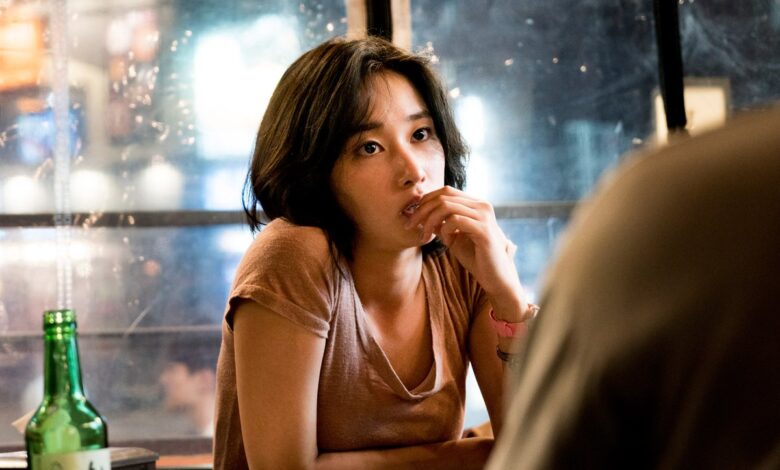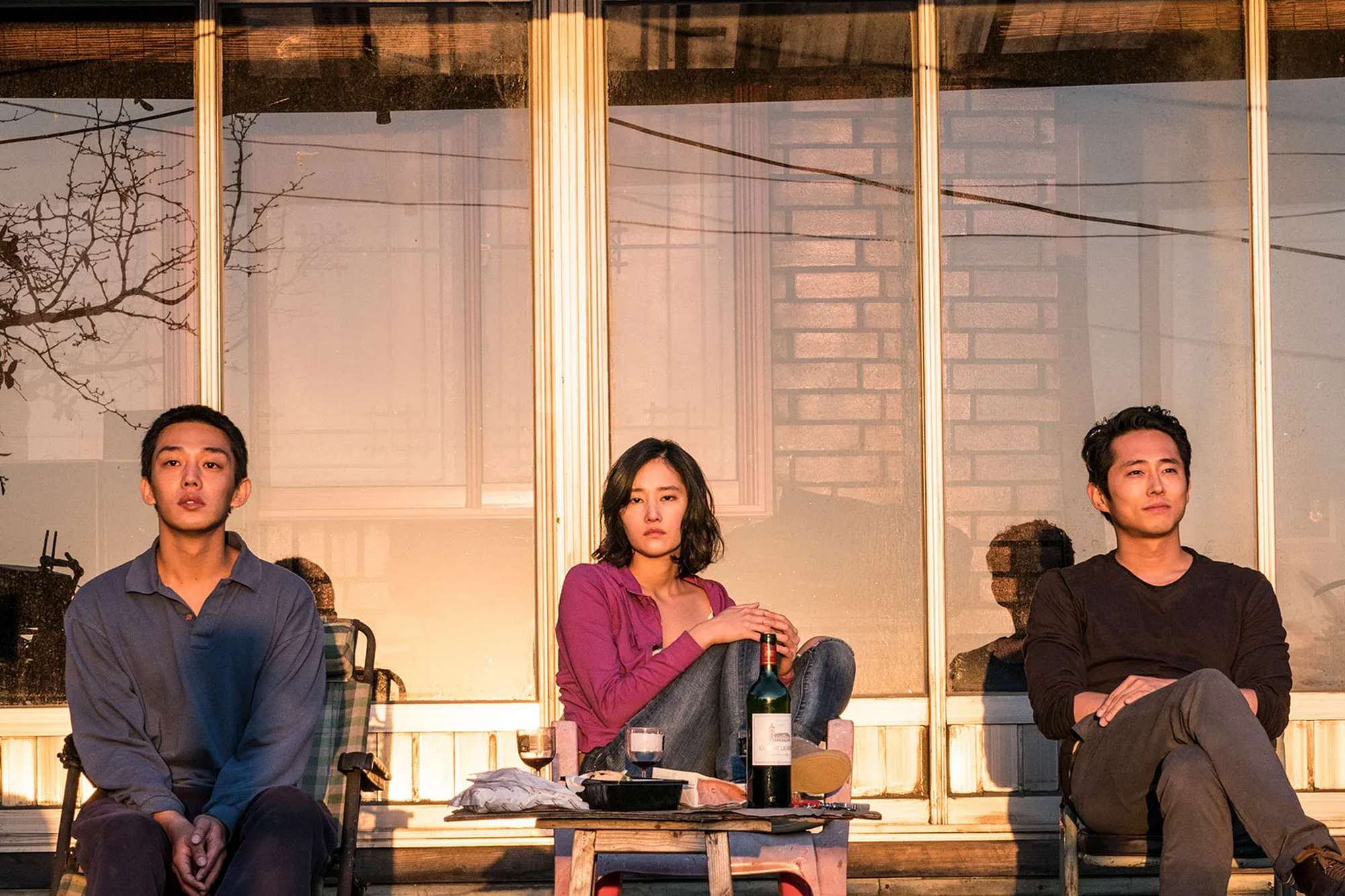Burning (2018): “Do you know what kind of people burn greenhouses?”

A Mystery That Smolders
When Burning premiered in 2018, director Lee Chang-dong didn’t just offer a film — he dropped a silent bomb. Adapted loosely from Haruki Murakami’s short story, this Korean cinematic enigma crawls under your skin and stays there. It’s not a thriller. It’s not a romance. It’s a quiet, unnerving dissection of obsession, class, and the invisible fires burning inside people.

The Vanishing and the Fire
Jong-su, a lonely delivery boy, stumbles into a reunion with Hae-mi, a quirky girl from his neighborhood. They connect. They share fleeting moments — and perhaps something deeper. But then enters Ben — a wealthy, charming young man who seems harmless… until he casually confesses a hobby: burning abandoned greenhouses.
And when Hae-mi disappears without a trace, Jong-su’s world spirals. Was it jealousy? Was it a crime? Or is Jong-su, in his desperate longing, burning his own sanity to the ground?
The Fire Beneath the Surface
Burning isn’t loud. It doesn’t shout. It whispers your darkest fears, strokes your insecurities, and lets them grow in the quiet. The film simmers with sexual tension, unspoken class warfare, and a gnawing suspicion that nothing — not even yourself — can be trusted. Every look, every silence, every gesture aches with meaning.

The Line That Haunts
“Do you know what kind of people burn greenhouses?”
A simple question. But in Burning, it cuts like a blade. Is Ben a harmless rich boy? Or a smiling predator? Is this about greenhouses… or people? The line turns from casual to chilling, wrapping around your mind like a slow, tightening noose.
The Fire You Can’t Escape
Burning isn’t just a film. It’s an itch you can’t scratch. It leaves you in the dark, questioning everything — the characters, the story, even yourself. You’ll leave the cinema not with answers, but with a slow-burning paranoia that maybe, just maybe, some people burn more than greenhouses.





